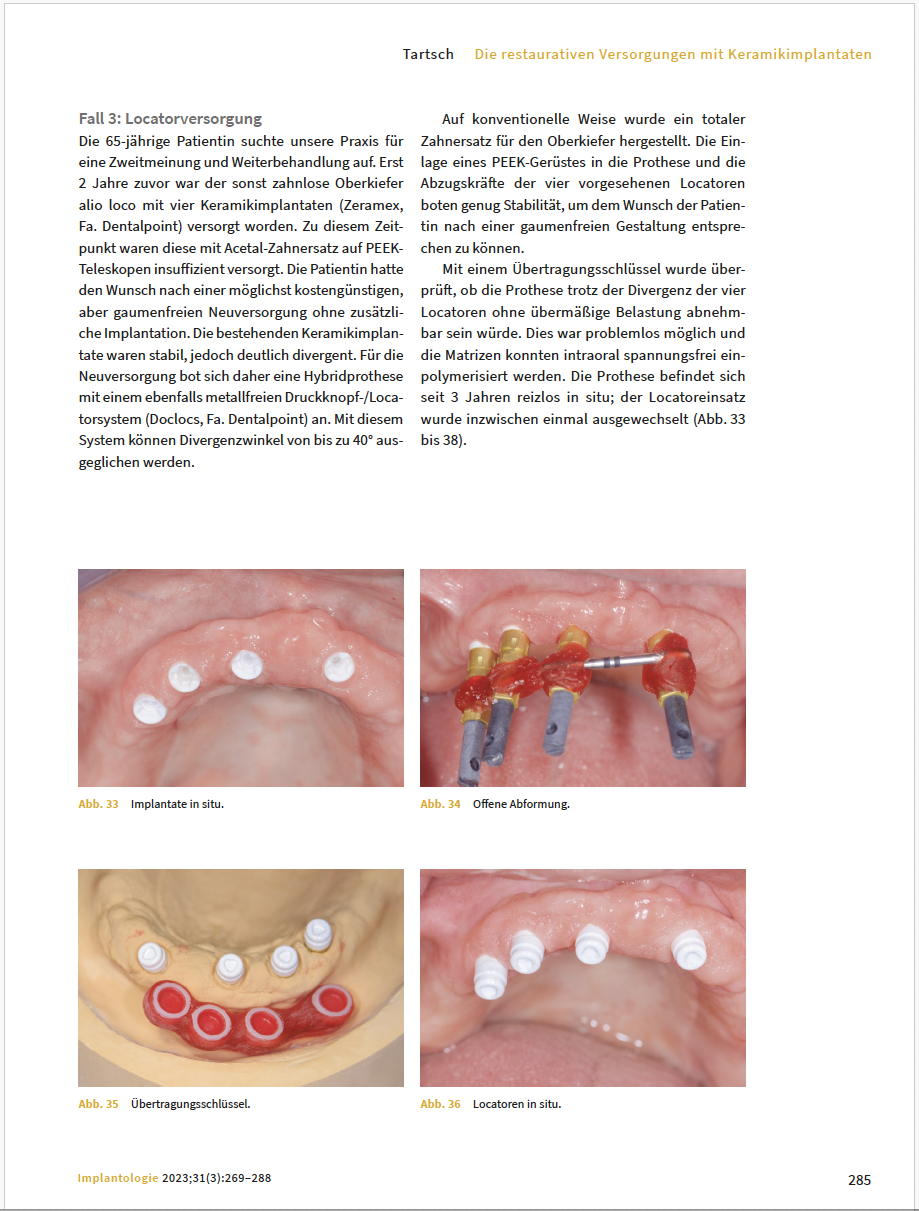Full-arch restoration on Docklocs® zirconia implants
Case report by Dr. Jens Tartsch

Tartsch J. (2023). Die restaurativen Versorgungen mit Keramikimplantaten. Quintessence publishing, Implantologie 31(3):269–288.
The 65-year-old patient came to our practice for a second opinion and further treatment. Only two years previously, the otherwise edentulous maxilla had been restored alio loco with four ceramic implants (Zeramex XT, CeramTec Switzerland). At that time, these were insufficiently restored with acetal dentures on PEEK telescopic crowns. The patient wished for a new restoration that was as cost-effective as possible but palate-free without additional implant placement. The existing ceramic implants were stable but clearly divergent. A hybrid prosthesis with a metal-free push-button system (Docklocs, CeramTec Switzerland) was therefore an option for the new restoration. This system can be used to compensate for divergence angles of up to 40°.
A total denture for the upper jaw was fabricated conventionally. The insertion of a PEEK framework in the prosthesis and the pull-off forces of the four locators provided sufficient stability to fulfil the patient's wish for a palate-free design.
A transfer key was used to check whether the prosthesis could be removed without excessive stress despite the divergence of the four locators. This was possible without any problems and the matrices could be polymerised intraorally without tension. The prosthesis has been in situ for 3 years without irritation; the locator insert has been replaced once in the meantime (Fig. 1-7).

Figure 1: Implants in situ

Figure 2: Open impression

Figure 3: Transfer key

Figure 4: Docklocs in situ

Figure 5: Intraorally polymerised matrices

Figure 6: Hybrid prosthesis on ceramic implants

Figure 7: Follow-up: no inflammation in situ for 3 years
About author
Dr. Jens Tartsch is President of the European Society for Ceramic Implantology (ESCI), board member of the Swiss Society for Anti-Aging Medicine and Prevention (SSAAMP) and Chairman of the German Society for Environmental Dentistry (DEGUZ). He runs a private practice in Zurich and is the author of numerous publications on metal-free implantology, immunology in dentistry, oral and maxillofacial medicine. His scientific areas of interest are environmental dentistry, metal-free implantology with ceramic implants, metal-free dentures and aesthetic dentistry.
Do you have any questions about the publications or would you like to find out more about the Zeramex XT implant system?
We welcome publications on the Zeramex XT implant system. If you would like to document and publish your case, please let us know using the contact form.
Contact form


